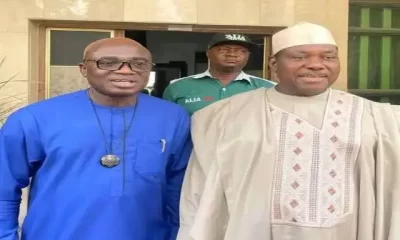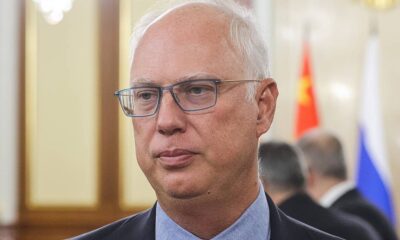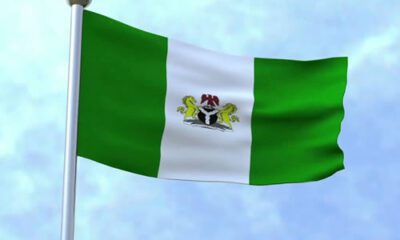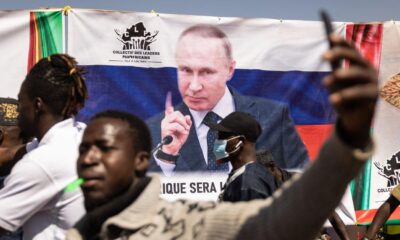Global Issues
“How do you reconcile the differences between Nigeria and Biafra?” -By J. Ezike
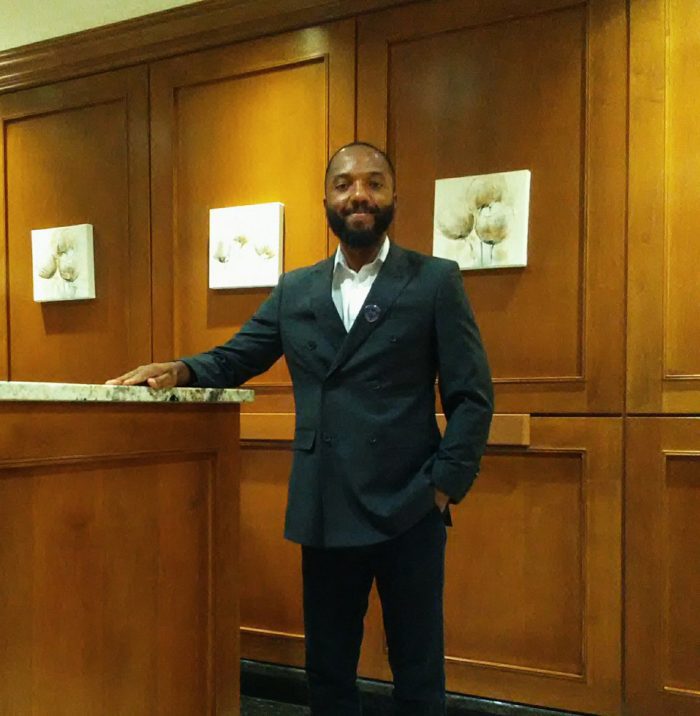
I do not believe in the twenty first century myth that the fate of Afrika is a hopeless one, that it is beyond our power to put our countries in sane conditions. It is only beyond our power if we choose to act unresponsive to the neocolonial politics that affects our lives and determines the trajectory of our destinies. And the truth about us in Afrika is that we have been psychologically damaged by foreign powers. And we seem not to be aware of the potency of this weapon that brings us to our knees and turns us into butchers of our own brothers and sisters, and makes us extremely ignorant of who we really are and where we truly belong in the universal scheme of things.
I wouldn’t have penned this essay. But I was inspired to do so after engaging on a difficult conversation with a sister from Libya who had expressed same fears, same convictions about the fate of Afrika and Afrikans. I found her conscious anxiety, her intellectual submission interesting as we tried to rationalize the depressing situation that appears to have made us helpless. When I say “helpless” I mean it in the sense that the redemption of Afrika and the reverse of its misfortunes have eluded Afrikans. And the reason for this is not because we lack the power that can afford us the fate we deserve. Rather, it is because we lack the consciousness of self. And if I could make my words harsher, I would add that we are still wrestling with the psychological habits of the Slaves.
We must admit this, that no continent on the face of the map has been so brutalized, and so raped, and so exploited, and so damaged for over five centuries as Afrika. The truth is that the enemies had evolved in their ways of annexing territories and amassing resource-wealth within the Black continent. And while they mature in their politics of control, Afrikans trail behind to counteract these organized schemes, to reverse the Order that has lent their misfortunes a strong taste.
When we lament about European domination on Afrikan soil, it is not simply a reference of the past but also an emphatic inclusion of the present, it is not simply an evidential truth but also an existential fact. The white racist has controlled Afrika for a long time and that oppressive behavior has remained incurable. It is reminiscent of the wickedness that saw the reckless destruction of indigenous populations and the ancient civilizations of the Old World. Nothing has changed except the stealth politics. And when I talk about stealth politics it refers to Neocolonialism. They simply walk in with smiling faces and then stay in with their puppets, their guns and their ammunitions, all within the background of wars and crisis. But what do we really mean when we voice our thoughts on about the Concept of Neocolonialism? How do we define it to meet the street wisdom and understanding of the Afrikan illiterate who has never seen the four walls of any institution of learning? How do we break this term down to its smallest molecule so that it becomes easily digestible? It is important that Afrikans have a simplified description, a basic understanding of this term. We must find meaning to this complex word that carries the ultimate blame for our misfortunes, otherwise we will end up chasing spirits and thinking that our predicaments are hypothetical when in fact it is as real as the internal wars orchestrated to favor the white racist.
This is not the case of employing big grammar to address big problem. It is not a case that demands we intellectualize the realities without cementing the assumed beautiful rhetoric into viable actions. And we should not be curious about the solution to our problems or make it our foremost item of discourse. That, I believe, is a wrong chain of thoughts and what it does is simply to put the cart before the horse and ultimately keeps our progress on halt. Rather, what I am suggesting is that we should be curious about “the cause of our problems” which then provides an explanation to the solution we seek. And the way to do that is to spotlight the term “Neocolonialism” and make it the tool of our mental exercise. We must understand that the problem that plagues Afrika is more psychological than it is political. Now this may sound superficial to someone with a counterfactual opinion but you do not expect an impeccable political leadership in Afrika when all that the continent represents in the eyes of the foreign powers is an avenue for an absolute and total exploitation of its resources, both human and mineral alike. And you cannot talk about human and mineral resources without making reference to economics, politics and culture. All three factors are the penetrable means to foreign domination in the so-called Third World Countries. And I have to preface this point with the term “Neocolonialism”. It is important I make repetition of it as I struggle to make sense of it and to strip it of all the permutations that surrounds it.
The terms means, as I understand, that a certain group of people from a totally different country has seized and claimed indirect ownership of the land and resources of a certain group of people from a totally different country. Now, mind you I deliberately omitted the word “Power” as an advantage of the former because I recognize the enemies’ habitual use of the psychology of language to cast a mental pyramid of class structure, to form a racial hierarchy of political positions and determine what color, race or ethnic group deserves a teaspoon of white privilege.
Take for example, the ongoing Ambazonian War cleverly coined as “Anglophone Crisis” by neo-colonialists or should I say European powers, is a powerful reminder of the meaning of Neocolonialism. It explores the silent control and damage from the background and how this old habit of power has made Afrika a giant chessboard with most of its leaders serving as pawns in the hands of the chess master. And if I could make my points more brutal, I would say that the war in Ambazonia could have been avoided, could have captured the interest of America, Canada, Britain and Europe, if the group of people living within that region were white or anything close to Caucasian.
And this is what Neocolonialism means in practical terms. It is the stripping of the human dignity of a group of people who do not have the facial or racial landscape of the Europeans, a people who are yet to grow in awareness of self and are psychologically programmed, conditioned and pottered to view the white man as the most advanced human being with a quality brain that exercises impeccable thoughts and decisions. It is within this backdrop that we find millions of psychologically wounded Black Afrikans genuflecting to a white Jesus, a white Mother Mary, a white Saint Peter, and a White Angel Michael and other “whitewashed” eponymous images of religious significance that are really a social construct, a white supremacist agenda aimed at the thinking cap of Afrikans and to do service in the viral circulation of white power. It is this Neocolonialism that holds the minds of Afrikans under siege and controls what and how they think, their views of themselves and where they have mentally placed their race in the pyramid of class or color structure.
Another example would be the ongoing Biafra revolution and the European conspiracy that apparently mimics the chains of events that were instrumental in the genocidal war of 1967-1970. Now, do not get me wrong, do not misunderstand my position as regards our experience as Black people, as Biafrans. My intention is not to glorify the lives of my people, the Biafrans, above the lives of the white people or others. I am simply engaging history with truth. And the truth is, wars have been fought in the West. Though I may not have in-depth knowledge of War Histories but I will try to align it with my point and hopefully pick my sentiments with a pinch of salt.
The First World War of 1914-1918 was referred as the most genocidal conflict in Canadian history; this ultimately led to a deep cleavage between English and French Canada. The war, like many other white-on white conflicts from the time-period of Alexander III of Macedon, to Napoleon Bonaparte, to Adolph Hitler, questioned the romantic notion of same-color conflict and the disastrous union of civilizations with distinct value systems. The wars rationalized the power struggle amongst Caucasian natives and saw the necessity of finding a cooling ground to reconcile their differences and heal their wounds and ultimately forge peaceful coexistence. This inspired the partition of Canada into two independent nations operating as provinces. This also inspired the European Union as a committee of allies and white nations. In political sense, it became a confederation, which is no different from the political arrangement that birthed the United Kingdom, the United States of America, Canada and the European Union. It is this respect for value systems and ethnic differences that brought Europe, Canada and America the lasting peace it enjoys today.
One would ask; why are you writing this? I am writing this, in response to the thoughtful question my sister from Libya had thrown at my table just few nights ago. She had asked me; “How do you reconcile the differences between Nigeria and Biafra?” I had told her in simple English that there is no reconciliation within the context of One Nigeria, because the same reason that led to the partition of Canada is the reason that motivates the youths of Biafra to demand a referendum, to be independent of Nigeria, to be granted the same inalienable rights as the British people whose Brexit campaign inspired Biafraexit.
Partition is not necessarily a statement of war. It does not necessarily close the conversation for mutual or political relation. It simply offers each distinct civilization the benefit of existing according to their cultures and traditions, according to their belief systems and social ambitions. Since the partition of Canada and the transfer of equal autonomy to the French and English speaking regions, the subject of war has eluded the minds of the Canadian people. And the tradition of white-on-white conflict has become the sad tale from the past. Hardly have we seen any wars within Europe or North America. It is not that these regions do not suffer ideological, economical or political disagreements. No. It is simply because of the reconciliation within the “context of referendum” that brought forth the partitions or treaties that gave independency to each distinct civilization through democratic or constitutional mediums. This is deeply structured so that when regions such as Quebec, Catalonia, California and etc, decide to be independent of the nations they feel entrapped in, they do so outside the context of war.
Even though I smell a conspiracy by the West to protect white interests, which I am not against, I am however revolted by their neocolonial footprints on Afrika soil, their iron resolve to ensure that the Black Continent never becomes the revolutionary continent it had struggled to become as we have seen in America, Canada, Europe and some parts of Asia. It is this neocolonial footprint that delays the manifestation of a referendum date for the Biafran people. It is this neocolonial footprint that delays the industrial revolution of Afrika. It is this neocolonial footprint that delays the total independence of the countries in Afrika. It is this neocolonial footprint that keeps Afrika and indeed Afrikans in a psychological bondage. It is this neocolonial footprint that inspires the suicidal migration into Europe and America.
In conclusion, the problem in or with Afrika has nothing to do with Satan and Hell Fire as we are told by some Men-of-god, like Adeboye, Osibanjo Father Mbaka and Kumuyi. Rather, the problem in or with Afrika has everything to do with NEOCOLONIALISM.

